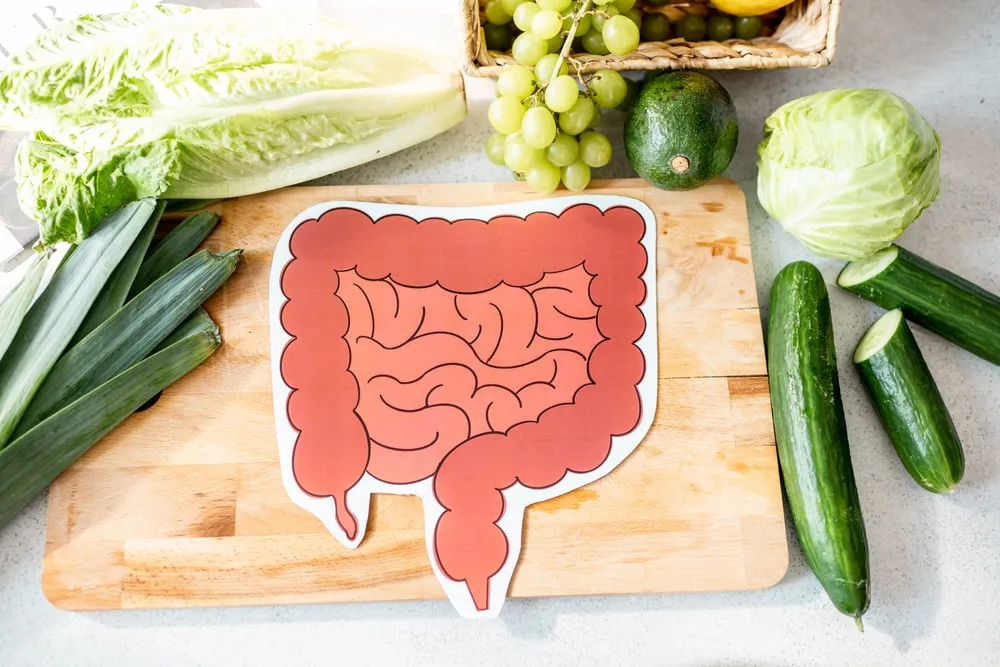
How Nutrition Affects Teens Mental Health
Teenagers are in a critical growth period of their life. Their bodies are undergoing rapid changes, as well as their brain. They are also at a stage in their life where they are beginning to make more independent decisions for their lifestyle and livelihood.
One of the biggest everyday choices they make is what and how they choose to eat. And their choices not only affect their physical health but their mental health as well.
Researchers are slowly realizing that if you want to change your brain, change your diet. Diet and mental health are more connected than you might think, and may be something to consider moving forward in guiding your teen’s dietary habits.
Feed Your Brain: Neurotransmitters and Diet
Researchers are becoming more interested in the link between diet, the brain, and mental health, and it looks like good food brings good mood. Serotonin is a neurotransmitter in charge of mood, sleep, appetite, and pain regulation. Surprisingly, 95% of your serotonin is produced in your gastrointestinal tract. And the production of neurotransmitters like serotonin is affected by the good bacteria in your gut.
This makes the link between mental health and diet make more sense, with certain eating habits promoting better mental health than others. Studies show that those who eat diets such as the Mediterranean and Japanese diets, which are rich in vegetables, fruits, fish, and seafood, were found to be at 25-30% lower risk for depression compared to the typical Western diet.
This is also possibly due to the lack of processed and refined foods and sugars commonly found in Western dietary patterns, as higher sugar intake has been associated with worsening depression and other mental health disorders due to inflammation throughout the brain and body.
Your Teen’s Gut and Mental Health
Further explaining the link between our gut and mental health, scientists have recently started to refer to our digestive system as a “second brain”. The gut microbiota, A.K.A. the microorganisms that live in our digestive tract, and the brain are in constant communication with each other. Gut microbes were discovered to directly influence brain function in the 90s, and since then studies have found that the gut microbiota plays a large role in anxiety, mood, cognition, and pain regulation.
So how do we keep our gut flora happy? We acquire our first set of microbes at birth, and after that the biggest determinant of gut microbiome composition is diet. Though there aren’t specific foods that can target certain mental health issues, there are foods that positively affect our overall gut health. A high-fiber diet consistent with prebiotics and probiotics feeds our beneficial gut bacteria, limits the growth of certain harmful bacteria and inflammation, and improves the absorption of nutrients.
So What Should My Teen Eat?
Most of us know that we should focus on nutritious food, including fruits, vegetables, grains, protein, and healthy oils and fat. But to promote mental health specifically, research suggests the following can be helpful.
Add:
- Prebiotics are fibers that help the good bacteria in your gut grow. This kind of fiber is found in foods such as garlic, bananas, onions, apples, leafy greens, and whole oats.
- Probiotics which are live bacteria and yeast good for your digestive system. The best sources of probiotics are fermented foods such as yogurt, kimchi, pickled vegetables, miso, and kombucha.
- Polyphenols are food compounds that fight inflammation, infection, and bacteria bad for your gut. Look out for colorful foods and drinks, such as nuts, berries, tea, and coffee.
- Omega-3 Fatty Acids have been found to promote greater microbial gut diversity, lowering inflammation and reducing depressive symptoms. You can find this in fatty fish and some shellfish.
Avoid:
- Processed foods can lead to inflammation in the body and increased disease risk, including depression and anxiety. This includes sugar, starch, hydrogenated fats, and lab-made chemical additives like flavor enhancers and food colorings.
- Red meat can lead to the growth of bad bacteria that can negatively impact immune function and emotional state, with studies showing a correlation between high red meat intake and depressive symptoms. Because of this, stick to the recommended three portions per week of red meat, or choose leaner meats such as chicken and seafood.
- Saturated fat is commonly found in red meats and high-fat dairy. This could lead to an excess of bilophila, a microbe that can cause inflammation. Because of this, enjoy cheese and fatty meats (such as bacon, ribs, and ribeye) in moderation.
- Simple carbs are stripped of their fiber and most of its nutrients. Due to this, they are digested quickly and spike blood sugar levels while giving gut bacteria very little to eat. Refined grains are one of the most popular simple carbs, including white flour, white bread, and white rice.
Over or Under Eating: Disordered Eating
While you’re looking after what your teen is eating, make sure to note how they’re eating too. Teens are at the highest risk of developing an eating disorder, as anorexia nervosa and bulimia commonly start in adolescence. Anorexia nervosa involves the lack of adequate food intake, while bulimia involves purging after eating. Both are due to the fear of gaining weight and a distorted perception of body image.
Disordered eating should be looked out for, as not only is it dangerous for their physical health, but it can negatively impact their mental health as well. Lacking nutrient intake or purging can contribute to the worsening of mental health. Binging can also negatively affect mental health due to stress about body image and mood imbalances caused by rapidly fluctuating dopamine and blood sugar.
Balance is key when it comes to eating; help your teen develop mindful eating habits.
So How Should My Teen Eat?
Engaging in mindful eating is a great way to lead your teen away from disordered eating, and closer to their actual body cues.
Some foundations of mindful eating are:
- Engaging all the senses while eating, such as paying attention to the texture, smell, sounds, and experiences of their food.
- Slowing down and taking the time to mindfully appreciate the food.
- Getting rid of distractions during meals, such as watching television or being on your phone.
Listening to and honoring their hunger can help strengthen or even repair their relationship with food, as it teaches them that eating is meant to provide the body with energy and nutrients. It can also help teens better identify and handle triggers unrelated to hunger, such as boredom, emotions, or cravings.
There are many ways you can promote mindful eating in your household. Some ways are:
- Don’t skip meals. If your child isn’t eating appropriately, they will have a harder time listening to their hunger cues. Pay attention to breakfast especially; when your child has the fuel they need to start the day, listening to what their body needs will be easier.
- Pack their lunch. This can help you control and promote healthier food choices. In addition, you’ll be able to better note their sugar, salt, and processed food intake compared to if they were to eat out.
- Go grocery shopping together. Shopping together can be an excellent learning opportunity for them to make healthier shopping choices when they grow older. Also, letting them choose healthy food for themselves will make them more likely to enjoy their food.
- Put the screens away during dinner time. Screens are the ultimate distractor that leads to mindless eating. Turn off the tv, put away the phones, and enjoy eating together as a family.
How Mental Health Affects Teens’ Nutrition
Mental health and nutrition influence each other both ways, not one or the other. Mental health has been greatly associated with how teenagers interact with healthy lifestyles and dietary habits. This makes it even more important to pay attention to other factors affecting your teen’s mental health, such as environment and home stressors, exercise, self-esteem, etc.
Once you treat your teen’s mental health, their dietary habits can improve. And once their dietary habits improve, it can help their mental health. It comes full circle!
If your teen is struggling with mental health issues, Beachside Teen Treatment Center is here to help. Our programs and services are individualized to each client and their goals for treatment. We aim to cater to your teen’s physical, emotional, mental, psychological, and nutritional needs. For more information about our programs, contact our admissions team today.






